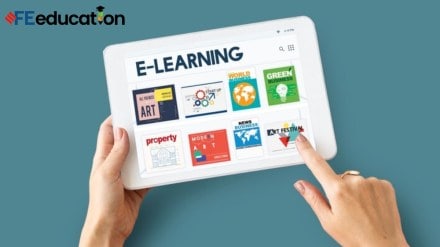Er. Koneru Satyanarayana, chancellor of KL Deemed to be University, shares his views on opportunities and challenges faced by the Indian education system with FE Education Online.
What is the best thing about today’s education system?
One of the standout features of today’s education system is its emphasis on a learning-focused approach. Unlike traditional methods, modern education doesn’t just rely on rote memorization. Instead, it encourages students to engage actively in the learning process, fostering critical thinking and problem-solving skills. This approach acknowledges the diverse learning styles and abilities of students, allowing for a more inclusive and effective educational experience. By promoting activities such as elaborating, demonstrating, and collaboration, the modern system cultivates deeper understanding and application of knowledge. Ultimately, this shift towards a learning-centered approach ensures that students are better equipped to navigate the complexities of the contemporary world and contribute meaningfully to society.
What is the one thing you would like to change in the education system?
One crucial change needed in the education system is fostering a more holistic approach to learning. Instead of solely focusing on rote memorization and exam scores, we should prioritize critical thinking, creativity, and practical application of knowledge. Introducing project-based learning, encouraging interdisciplinary studies, and providing ample opportunities for hands-on experience can better prepare students for the challenges of the real world. Moreover, incorporating socio-emotional learning to develop empathy, resilience, and communication skills is essential for overall growth. By shifting the focus from academic achievement to holistic development, we can nurture well-rounded individuals capable of thriving in diverse environments and contributing meaningfully to society.
What is the role digital has played in the evolution of the education system?
The digital revolution has significantly reshaped the education landscape. It has democratized access to knowledge, enabling learners worldwide to engage with educational resources regardless of their geographical location or socioeconomic status. Digital tools have diversified teaching methods, offering personalized learning experiences tailored to individual needs and learning styles. Moreover, the rapid pace of technological advancement has compelled educators to adapt, fostering a more innovative and dynamic learning environment. From interactive online platforms to immersive virtual reality simulations, digital technology has revolutionized how information is delivered and absorbed. However, challenges such as the digital divide and concerns over screen time remain pertinent, highlighting the need for equitable access and balanced integration of digital tools in education.
What has been the disadvantage of digital in education?
One significant disadvantage of digitalization in education is the potential for increased distraction and decreased focus among students. With the vast array of online content available, learners may find it challenging to stay focused on educational materials, leading to reduced comprehension and retention. Additionally, reliance on digital platforms can exacerbate issues of unequal access to technology and internet connectivity, widening the digital divide among students. Moreover, digital dependence may compromise essential interpersonal skills, such as face-to-face communication and teamwork, as interactions become mediated through screens rather than in-person engagement. Thus, while digitalization offers numerous benefits in education, it’s crucial to address these drawbacks to ensure equitable and effective learning experiences for all students.
What is the career advice you would like to give to students?
First and foremost, I encourage students to prioritize gaining practical experience through internships, co-op programs, or part-time jobs relevant to their field of interest. This hands-on experience not only enhances their skills but also provides valuable insights into their chosen career paths. Additionally, fostering a strong professional network through networking events, informational interviews, and online platforms can open doors to opportunities and mentorship. It’s crucial for students to continuously develop their skills, both technical and soft, to stay competitive in today’s job market. Lastly, maintaining a balance between academics, extracurricular activities, and personal well-being is essential for holistic growth and long-term success. By following these guidelines, students can effectively navigate their academic journey and prepare themselves for fulfilling careers.
###
